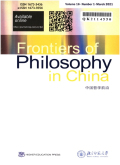Introduction to the Special Theme on Hegel in Intercultural and Critical Perspective
Karl Jaspers remarked at the beginning of his 1949 work The Origin and Goal of History,written in response to the shadows of Hegel”s teleological conception of history and the devastation of the Second World War and the Holocaust,that for Hegel:”All history goes toward and comes from Christ.The appearance of the Son of God is the axis of world history” (Jaspers 2014,1).Jaspers contested the interpretation of world history through exclusively Christian terms,as well as their secularized forms within the Eurocentrism that came to dominate Western philosophy,which could not be appropriately applied to the various non-Christian peoples of the globe.The philosophy of history had to become global by extending it to the concrete historicity and diversity of non-Western lifewodds and discourses that called for being interpreted according to their own sense and their own forms of communication and reflection.Jaspers rediscovered a human universality in the historical hypothesis of an ”axial age” and,more fundamentally,in the constitutive communicative character of human existence.Nonetheless,his critics have contended that there is a lingering Hegelianism and Eurocentrism in his account of historical structures and processes that continue to privilege-if more subtly in the guise of universality-a Western understanding of rationality and individual freedom.
13
2019-03-05(万方平台首次上网日期,不代表论文的发表时间)
共4页
479-482




